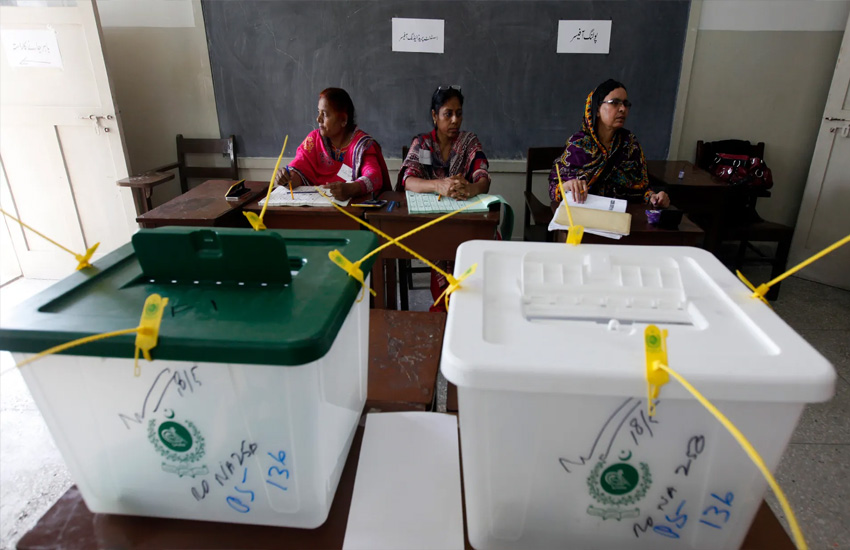Pakistan Tehreek-e-Insaf (PTI)-supported candidate Dawar Kundi has emerged victorious in the NA-43 Tank constituency.
According to unofficial results from all 348 polling stations in NA-43 Tank, Kundi secured 64,483 votes, narrowly defeating his closest challenger, Mufti Asad Hammood of Jamiat Ulema-e-Islam (JUI), who garnered 63,900 votes.
On February 8, due to security concerns in NA-43 Tank Constituency, Dera Ismail Khan, polling at six stations was postponed.
The polling process resumed today at 8 am and continued till 5 pm without break, with strict security measures in place, including the deployment of Pakistan Army troops.
On Sunday, the Election Commission of Pakistan (ECP) notified the successful candidates for 36 seats of the National Assembly from Khyber Pakhtunkhwa.
Among those declared victorious are from NA-4 Upper Dir Sibghatullah, Gohar Ali Khan from NA-10 Buner, and Umar Ayub from NA-18 Haripur.
The notification confirmed the success of Asad Qaiser for NA-19 Swabi and Shandana Gulzar for NA-30 Peshawar.
Shehryar Afridi emerged victorious from NA-35 Kohat, while Sher Afzal Marwat secured victory from NA-41 Lakky Marwat.
The notification highlighted the success of a member each from the Pakistan Muslim League (PML-N), Pakistan People's Party (PPP), and MWM in the Khyber Pakhtunkhwa (KP).
It’s noteworthy that independent candidates have been given a window of three days to decide and joined any political party of their choice.
As polling stations closed across Khyber Pakhtunkhwa's vibrant landscape, the vote count also conlcuded. With a population of 48.5 million, as per the seventh census, Khyber Pakhtunkhwa emerged as a significant player in the electoral landscape.
The province boasted 21,928,119 registered voters, showcasing a formidable voice in the democratic process. Among these, 11,944,397 were male voters, while 9,983,722 were female voters.
The Khyber Pakhtunkhwa Assembly featured a total of 115 general seats, complemented by 26 reserved for women and 4 earmarked for non-Muslims.
Additionally, the province contributed 45 seats to the National Assembly, including 10 reserved for women.
A robust network comprising 15,696 polling stations was established across Khyber Pakhtunkhwa, catering to the diverse electorate. Among these, 4,810 were designated for male voters, 4,287 for female voters, while 6,600 welcomed both genders.
To ensure the smooth conduct of the electoral process, over 181,000 polling staff members were appointed and trained, underscoring the commitment to transparency and efficiency. Result dissemination would be facilitated through various channels, including Form 45, EMS online, and offline platforms.
The electoral arena brimmed with anticipation as 713 candidates vied for National Assembly seats and 1,814 contested for Provincial Assembly seats. A staggering 454.4 million ballot papers were printed to accommodate the democratic fervor gripping Khyber Pakhtunkhwa.



























